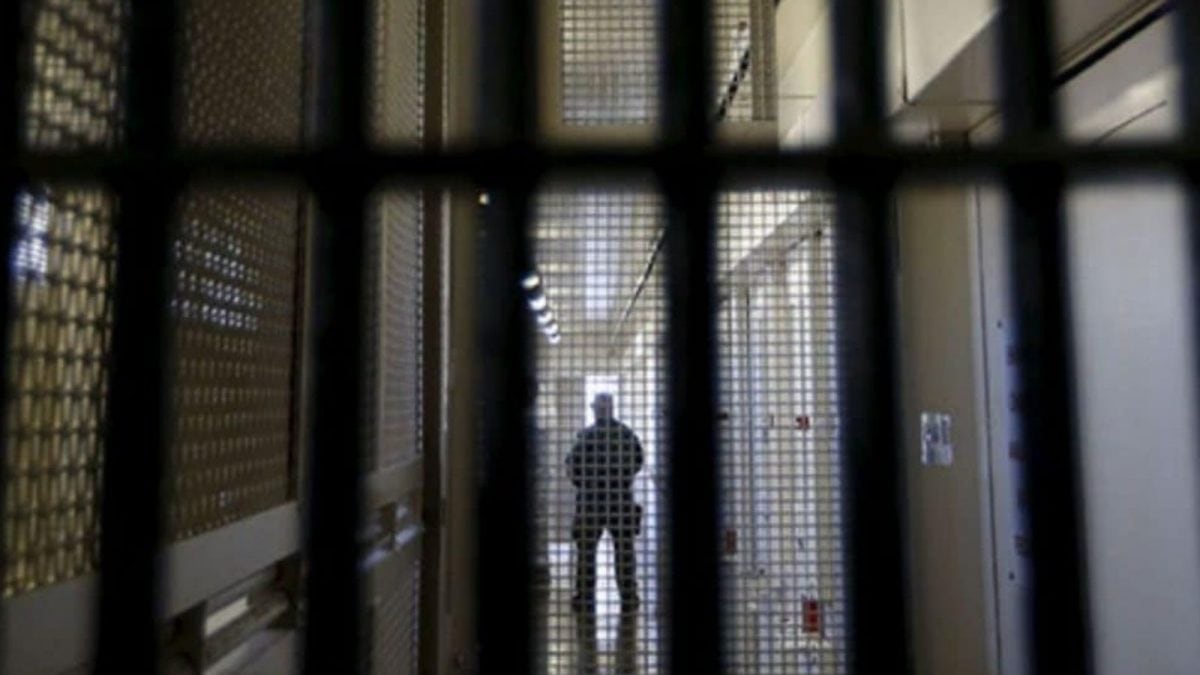Last Updated:
Matthew Radalj, an Australian, shared his harrowing experience of nearly five years in a Chinese prison, describing severe punishment, forced labour, and abysmal living conditions.

Inmates were subject to horriific conditions in Chinese prisons.(Representative Image)
An Australian man, Matthew Radalj, shared his harrowing experience of spending nearly five years in a Chinese prison, where he described severe physical and psychological punishment, forced labour and abysmal living conditions.
Radalj, who previously lived in Beijing, claimed he was wrongfully convicted in 2020 after a fight with shopkeepers at an electronics market over a dispute on the agreed price of a mobile phone screen.
He alleged that he was made to sign a false confession of robbery after being told that it was pointless to plead his innocence in the Chinese legal system with a 100% conviction rate, according to a report by the BBC. Court documents indicated that the confession helped reduce his sentence to four years.
He was imprisoned in Beijing No. 2 prison, a facility used for international inmates, in January 2020. Radalj shared a dirty cell with a dozen other inmates and was subjected to constant sleep deprivation, forced labour and poor hygiene.
Life In A Chinese Prison
“I was in really bad shape when I arrived. They beat me for two days straight in the first police station that I was in. I hadn’t slept or eaten or had water for 48 hours and then I was forced to sign a big stack of documents,” he said.
Radalj, who was a video producer, said he was held for several months in a separate detention centre, where he endured a harsher “transition phase” marked by severe physical abuse, food deprivation, and psychological torture.
“We were banned from showering or cleaning ourselves, sometimes for months at a time. Even the toilet could be used only at specific allotted times, and they were filthy – waste from the toilets above would constantly drip down onto us,” he told BBC.
He was later transferred to the regular prison, where inmates were packed in overcrowded cells with the lights staying on 24×7. He said inmates slept and ate in the same room. While African and Pakistani prisoners made up most of the inmates, some of them were also from Afghanistan, Britain, the US, North Korea and Taiwan, with most of them being convicted for acting as drug mules.
‘Good Behaviour’ Points System
Radalj also revealed the “good behaviour points system” in Chinese prisons, which was a way to reduce one’s sentence. Prisoners could obtain a maximum of 100 good behaviour points each month via activities like studying Communist Party literature, working in the prison factory and snitching on other inmates.
However, a prisoner’s time would only be reduced if they accumulated over 4,200 points – which means that they would need to get maximum points every month for three and a half years. This was a method of psychological torture and manipulation, according to Radalj.
He explained that guards would dock points just when an inmate was close to reaching their goal for minor “infractions” – like hoarding or sharing food, walking ‘incorrectly’, hanging socks on a bed incorrectly and standing too close to a window.
Several former Chinese prisoners have also described similar haunting experiences. Former British prisoner Peter Humphrey, who spent two years in detention in Shanghai, said his facility had a similar points system. “There were cameras everywhere, even three to a cell. If you crossed a line marked on the ground and were caught by a guard or on camera, you would be punished,” he said.
Food Deprivation
When Radalj and other prisoners did not follow the points system, authorities resorted to other methods of psychological punishment, like cutting monthly family calls or reducing benefits. Food deprivation was the most common tool used to torture prisoners.
According to several prisoners, most meals at Beijing’s No. 2 prison were mostly made up of cabbage in dirty water which sometimes also had bits of carrot and very rarely meat. They were also given mantou – a plain northern Chinese bread.
According to Radalj, most of the prisoners were malnourished. Inmates were given the opportunity to supplement their diet by buying meagre extra rations, though money sent by relatives in their “accounts”. These funds could be used to purchase items like instant noodles or soy milk, although this provision was also subject to restrictions.
Radalj told the BBC that he was banned from making any additional purchases for 14 months because he refused to work in the prison factory, where inmates were required to produce basic goods for companies or assemble propaganda materials for the ruling Communist Party.
Moreover, the prisoners were forced to work on a “farm”, where they grew a lot of vegetables but were never allowed to eat them. Radalj said the farm was displayed to a visiting justice minister as an example of how impressive prison life was, but it was all a show.
“We would be growing tomatoes, potatoes, cabbages and okra and then – at the end of the season – they would push it all into a big hole and bury it,” he said. “And if you were caught with a chilli or a cucumber in general population you would go straight to solitary confinement for eight months.”
Solitary Confinement
Radalj also described a battle between African and Taiwanese groups in his prison, after Nigerian inmates working in the kitchen were reportedly getting “small benefits”, like a bag of applea, bananas or yogurt. When the Taiwanese inmates convinced the guards to let them take over kitchen duty, it sparked a huge brawl and Radalj was caught in the middle.
The Australian man was sent to solitary confinement for 194 days after hitting another prisoner. He was kept under very little light and his food ration was cut in half, and he had no one to talk to for half a year.
“You start to go crazy, whether you like it or not, and that’s what solitary is designed to do… So you’ve got to decide very quickly whether your room is really, really small, or really, really big,” he said. “After four months, you just start talking to yourself all the time.”
In the midst of his disturbing experience, Radalj secretly kept a journal by writing on pieces of peeled Covid-19 masks, using the help of North Korean prisoners for tiny writing. Before being released on October 5, 2024, he hid the notes inside the lining of his old jacket.
After his release, he arrived in Australia and hugged his father at Perth airport. He later got married to his long-time girlfriend and now they spend their days making candles and other products. However, he is still processing his traumatic experience in China. He also attempted to contact the families of his former inmate friends, some of whom had not spoken to their loved ones for nearly a decade.
- Location :
Canberra, Australia
- First Published:




